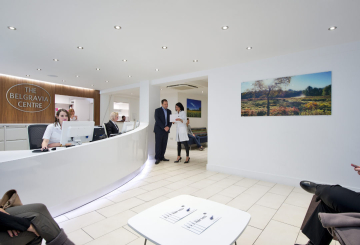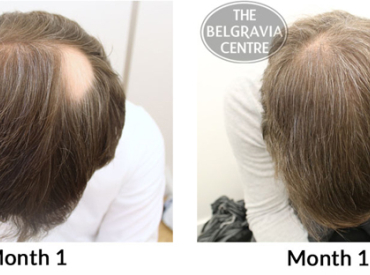Pulse Therapy Alopecia Areata Treatment Research Wins Award
A new research project investigating the potential of an oral medication to treat autoimmune hair loss disorders has won a National Award in Spain.
The Pedro Jaen Trichology Group Dermatology Unit in Madrid has been awarded a National Congress of Dermatology Award for his research into severe forms of Alopecia Areata. It is the third time the team, co-ordinated by Doctor Sergio Vañó, has won the National Award for the best research study in the field of Trichology in the past four years.
Pulse therapy for severe alopecia areata
The Madrid prospective study investigated an oral therapy for treating the most extreme iterations of Alopecia Areata: Alopecia Totalis and Alopecia Universalis. Whereas alopecia areata causes patchy hair loss limited to the scalp only, AT causes complete baldness and can cause the eyelashes, eyebrows and facial hair to fall out. AU leads to a completely hair-free body from head to toe.
Whilst alopecia areata treatment can produce significant hair growth in cases of a milder AA diagnosis, AT and AU are more resistant. Currently there are no significant and truly effective treatments for alopecia totalis and alopecia universalis available, though many research initiatives are underway hoping to address this.
Recognising the importance of developing new therapeutic tools in order to assist people with these often traumatic conditions, which can affect men, women and children, the Spanish dermatologists' recent work has focused on AT/AU.
The medication used in this award-winning trial was oral dexamethasone mini-pulses. This means that the steroid dexamethasone was administered using the pulse therapy method. This involves administering medications in large amounts over a short time interval, such as once per week, so that it can deliver stronger benefits quickly. It is designed to help patients avoid long-term use of medications.
Although the dosage and treatment schedule information is currently unavailable, the Pedro Jaen study is known to have had a positive regrowth response from 80 per cent of the 31 patients that took part in the trial. Again, details as to the levels of regrowth these patients experienced are not provided.
Previous mini-pulse studies
This type of medication using the same delivery method has previously been tested in relation to vitiligo - another autoimmune condition - which proved effective. Since autoimmune conditions are often interconnected it is often the case that what works for one may also have a therapeutic effect on another. This research paper conclusion states: 'Low-dose oral mini-pulse dexamethasone therapy is a good option for arresting progressive unstable vitiligo with minimal adverse effects.'
A clinical trial in Iran in 2014, conducted by the Department of Dermatology at Shiraz University of Medical Sciences, studied treatment for Alopecia Areata administered via oral mini-pulses. The results were incredibly positive for children as well as adults:
- An 8 year old girl with Alopecia Totalis who was treated with a mini pulse of betamethasone comprising 5 mg given on 2 consecutive days each week reported full scalp hair regrowth after 3 months
- Following a separate 12 week treatment regime whereby 30 alopecia areata patients were given 5mg of oral betamethasone for 2 consecutive days per week, 63.3 per cent saw what is described as 'complete to excellent hair regrowth'. However, 20% of trial participants experienced no regrowth
- In another clinical trial patients with sizable alopecia areata patches responded well to oral administrations of 63.3 per cent of cases with extensive alopecia areata responded well to 30 mg prednisolone taken orally each day for 3 consecutive days per week over a 6 month period. In comparison, 27.3 per cent of those involved in the same study who had alopecia totalis saw 'good to average' regrowth results
- A further study to explore how effective 0.1 mg /kg betamethasone given twice weekly to 15 patients - 8 with alopecia totalis/universalis and 4 with ophiasis - found that 11 of the participants experienced full regrowth.
 Treatment for alopecia totalis and alopecia universalis
Treatment for alopecia totalis and alopecia universalis
These results - especially if the findings of the Egyptian trial, which specifies minimal side effects, are correct - sound encouraging. However, as with the development of any new hair loss treatment, they are likely to need many more years of research and testing to ensure their safety as well as efficacy, before being made available.
In the meantime anyone aged 16 years or over who is concerned about discovering rounded bald spots anywhere on their scalp due to sudden hair loss should contact a hair loss specialist. They will be able to diagnose the condition and recommend a personalised treatment course customised to each individual's specific needs, as well as providing support throughout the regrowth process. Anyone who experiences sudden baldness, facial and/or body hair loss or who is under 16 years of age should seek advice from their GP.

The Belgravia Centre
The Belgravia Centre is a world-renowned group of a hair loss clinic in Central London, UK. If you are worried about hair loss you can arrange a free consultation with a hair loss expert or complete our Online Consultation from anywhere in the world for home-use treatment.
View our Hair Loss Success Stories, which includes the world's largest gallery of hair growth photos and demonstrates the level of success that so many of Belgravia's patients achieve.

